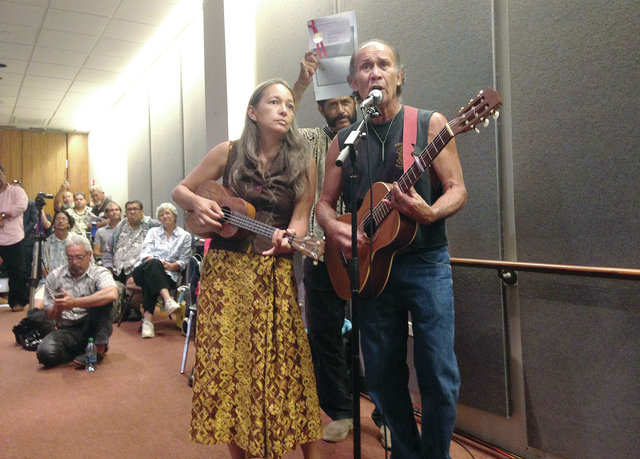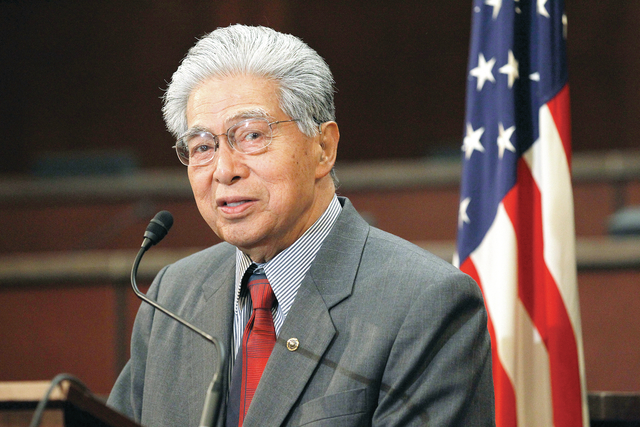HONOLULU — Native American communities with their own governments have long had a way to establish a relationship with the United States, but until now one of the largest indigenous groups in the country hasn’t had the same opportunity. ADVERTISING
HONOLULU — Native American communities with their own governments have long had a way to establish a relationship with the United States, but until now one of the largest indigenous groups in the country hasn’t had the same opportunity.
The U.S. Department of the Interior announced Friday that it finalized a rule for creating a government-to-government relationship with Native Hawaiians — if they choose to form their own government and if they want such ties.
Former U.S. Sen. Daniel Akaka spent about a dozen years trying to get a bill passed that would give Native Hawaiians the same rights already extended to many Native Americans and Alaska Natives. Efforts to get the bill to a vote consistently were blocked, and Akaka retired three years ago.
Native Hawaiians have not had a formal, unified government since the overthrow of the Hawaiian kingdom in 1893. Supporters of the Interior Department’s rule see it as a big step toward federal recognition.
Critics say it won’t right the wrongs of the overthrow and that it’s meant to turn Native Hawaiians into Indian tribes. Some Native Hawaiians say it can’t be assumed all indigenous people share the same history, experiences and needs.
Many Native Hawaiians have long been clamoring for self-determination, but there are varying opinions of what that would look like, including federal recognition, restoring the overthrown Hawaiian kingdom or dual citizenship.
They are the largest indigenous group in the U.S. that has not been offered the chance for a relationship with the federal government, said Kris Sarri, the Interior Department’s principal deputy assistant secretary for policy management and budget.
“Issues around the Native Hawaiian community itself organizing, making a decision to form a government … that is something really for the community to make decisions about,” she said. “All we wanted to do was make sure if they wanted to pursue those options, there was an option for a government-to-government relationship.”
The final federal rule mirrors a proposal announced a year ago and sets an administrative procedure that Interior would follow if an established Native Hawaiian government wants those ties.
It requires there be a governing document that undergoes a ratification vote by Native Hawaiians. An attempt last year to have an election to select delegates for a constitutional convention fell apart after a lawsuit challenged the legality of having a race-based election.
It’s not clear how the ratification requirement would be met. That’s for Native Hawaiians to figure out, Sarri said.




